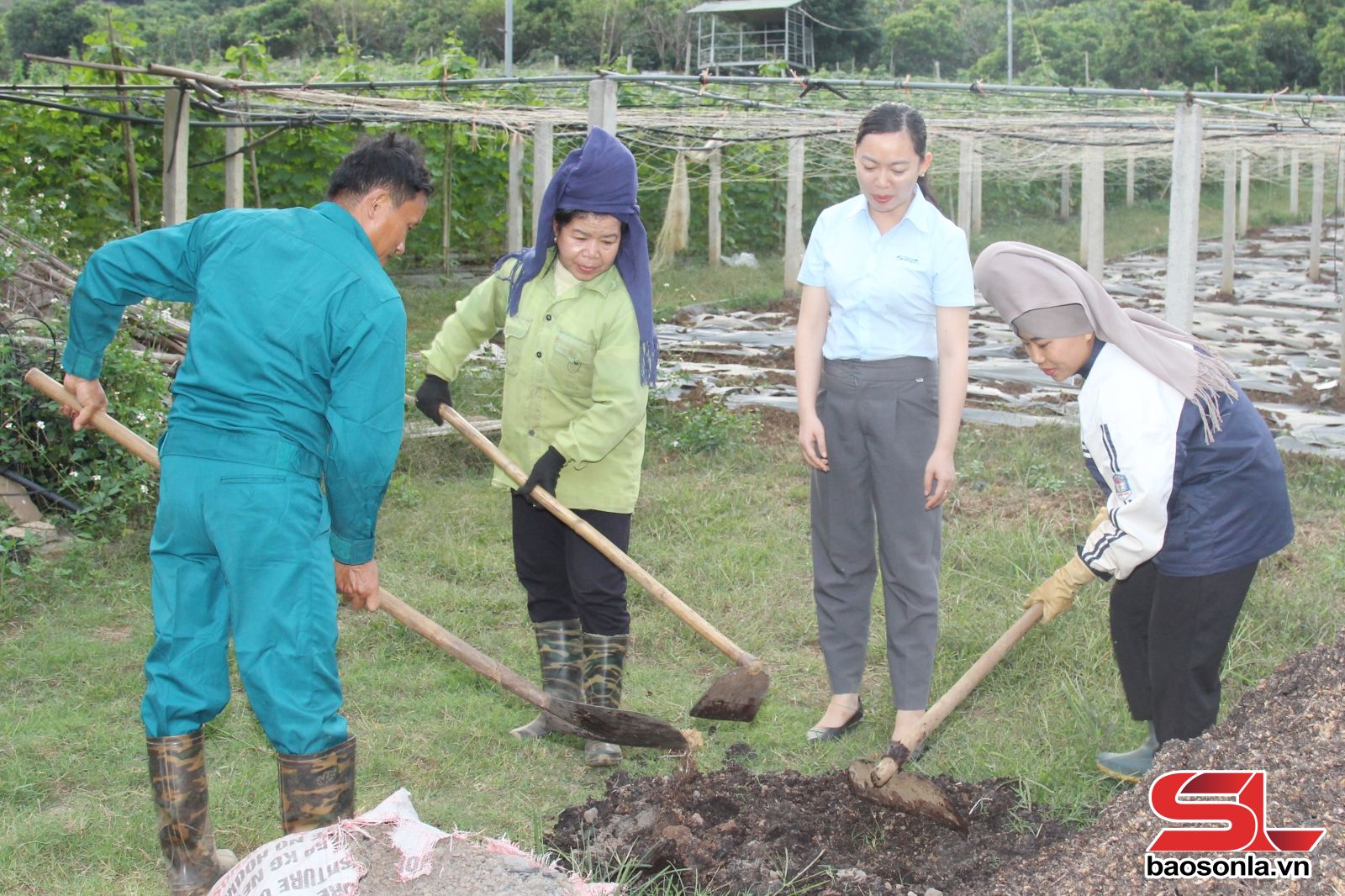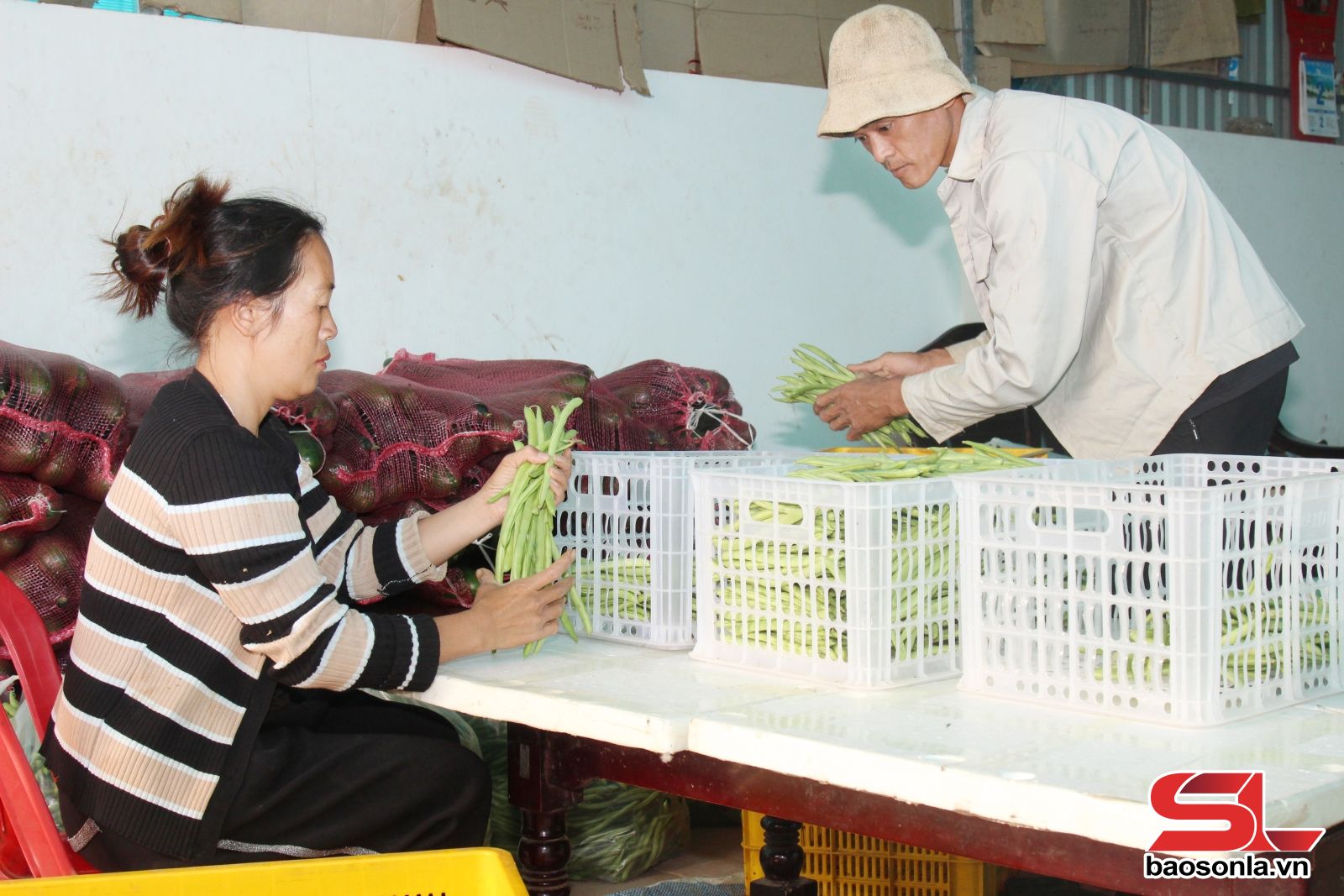
Technicians from the Agricultural Technical Centre guide farmers in Chieng Mai commune on how to compost coffee husks into organic fertilizer for vegetable gardens.
The province aims to cultivate approximately 25,000 hectares of vegetables by 2030, yielding over 300,000 tons annually. Of this, 7,500 hectares will be dedicated to traceable, concentrated safe vegetables, producing more than 80,000 tonnes, with over 95% of tested samples meeting safety standards. A production zone for safe vegetables has already been established based on the 2021-2030 planning period.
The province has also attracted agricultural investment, built linkage chains from production to processing and consumption, and supported the development of cooperatives, issuance of planting area codes, and provided training on production, pre-processing, and preservation techniques.
According to Tran Dung Tien, Deputy Director of the Department of Agriculture and Environment, the department annually issues guidance on crop structure and planting schedules, and has partnered with the Japan International Cooperation Agency (JICA) to develop safe vegetable models and raise awareness among both producers and consumers.
The department also supports facilities in obtaining certifications, developing raw material zones for processing, training on post-harvest preservation, and upgrading irrigation systems to ensure stable water supply, contributing to improved economic value per hectare.
.jpg)
Workers at the DOVECO Son La Fruit and Vegetable Processing Centre pre-process sweet corn.
By the end of 2024, the province had cultivated nearly 14,000 hectares of vegetables and spices, yielding over 195,800 tonnes. The cultivation area for several vegetable types has expanded: leafy vegetables reached 5,238 hectares (83,200 tonnes), legumes 1,164 hectares (13,259 tonnes), and fruit-bearing vegetables 5,108 hectares (over 77,000 tonnes).
Eleven cooperatives have been certified with VietGAP standards; 40 safe vegetable supply chains are being maintained, providing 13,396 tons per year. Notably, the Tu Nhien Safe Vegetable Cooperative in Dong Sang commune has been certified for organic vegetable production, with an annual output of 145 tonnes.
Nguyen Thi Luyen, Director of the Tu Nhien Safe Vegetable Cooperative, shared that organic certification provides a competitive advantage, helping their products access supermarkets and gain consumer trust. The cooperative now requires all member households and affiliated growers to adopt information technology for production management and monitoring, apply origin-tracing labels, and ensure product quality reaches consumers safely.

Members of the Son La Agricultural Cooperative in Chieng Mai commune harvest and package vegetables before distribution.
In addition, sustainable linkages between farmers, cooperatives, and enterprises have been established, boosting the production and consumption of safe, traceable vegetables while maintaining and expanding material zones for processing plants.
Pham Ngoc Thanh, Deputy CEO of Dong Giao Food and Export JSC, stated that the company has developed nearly 1,500 hectares of raw material areas in Son La province, with about 50% dedicated to vegetables and tubers for processing. Each year, the company purchases and processes over 24,000 tonnes of sweet corn, vegetable soybeans, and other crops, ensuring a stable supply for its factory and a secure market for farmers.
Two years into the implementation of the safe vegetable production development plan toward 2030, the results are clear: expanded cultivation areas, improved yields and quality, and robust supply chains. These outcomes lay a strong foundation for the province to achieve its long-term goals, toward a sustainable vegetable production system that enhances the value and competitiveness of agricultural products while securing stable income for farmers.











.jpg)











You have 500/500 characters left
Please enter 5 or more characters!!!